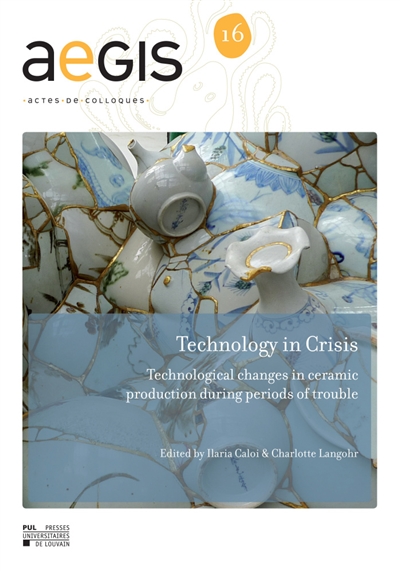en savoir plus

Carte fidélité
Permet à tous ses détenteurs d'obtenir 5% de réduction sur tous les livres lors du retrait en magasin (réduction non cumulable avec les réductions de type étudiant).
Offre également un certain nombre d'avantages auprès de nos partenaires.
Wishlist
Avec les favoris, retrouvez dans un espace les sélections effectuées au fur et à mesure de vos navigations dans le site.
Constituez pour votre usage personnel vos listes de livres en prévisions d'achats futurs et votre sélection d'articles, dossiers, événements, vidéos ou podcasts préférés ou à découvrir plus tard...
Il suffit simplement de cliquer sur "Ajout Favori" sur chaque page qui vous intéresse pour les retrouver ensuite dans votre espace personnel.
Requiert un compte Mollat
Mes Alertes
Requiert un compte Mollat
Technology in crisis : technological changes in ceramic production during periods of trouble
en savoir plus
Résumé
Issues d'une conférence, des analyses sur la classification des poteries à l'âge du bronze méditerranéen, dans les bases de données archéologiques. Les contributeurs s'interrogent sur les méthodes technologiques à employer afin de déterminer si l'examen des céramiques permet de révéler des périodes de transition, de crise ou de changement sociaux, politiques, économiques à cette période. ©Electre 2025
Lire la Quatrième de couverture
Réduire la Quatrième de couverture
The book
This volume comprises the proceedings of a workshop with the same title which took place in February 2016 at UCLouvain (Louvain-la-Neuve. Belgium). It was organised within the framework of the ARC13/18-049 (concerted research action) « A World in Crisis ? ». This workshop questioned the reliability of pottery as crisis indicator within the archaeological data set. More particularly, following the perspective of archaeological and anthropological research that assesses pottery technology as a social product, there is an interest in addressing the social and cultural aspects of technological change in pottery production in the specific context of crisis and period of trouble. The main goal of our examination was to detect whether and how technological choices or changes observed in the archaeological ceramic record may reflect periods of transition, disruption, crisis or change pertaining to social, political, economic and environmental conditions. We proposed to address these questions by bringing together experts in charge of the study of pottery at different Bronze Age Mediterranean sites in order to discuss, confront and contextualise their respective assemblages and associated contexts.
This two-day workshop emphasised that the majority of our case studies allow the identification of continuous changes in pottery production systems, i.e. changes that do not evidence any clear cessation of transmission in potting practices. These are interpreted as indicators of periods of transition, of socio-political and economic transformation, rather than moments of crisis or disruption. On the contrary, discontinuous changes in pottery production systems have been observed in those contexts where new paste recipes and/or innovative forming techniques were introduced by foreigners and adopted by local people. Finally, the contributions also highlighted that our observations needed to be replaced in a broader contextual framework, especially in the case of the Late Bronze Age (13th-12th c. BC) Mediterranean systems' collapse. Indeed, several archaeological contexts here examined have demonstrated a relative continuity of ceramic traditions at the 13th-12th c. BC transition, while other forms of transmitted technological knowledge had abruptly stopped.
Fiche Technique
Paru le : 08/02/2019
Thématique : Préhistoire
Auteur(s) : Non précisé.
Éditeur(s) :
Presses universitaires de Louvain
Collection(s) : Aegis
Contributeur(s) : Editeur scientifique (ou intellectuel) : Ilaria Caloi - Editeur scientifique (ou intellectuel) : Charlotte Langohr
Série(s) : Non précisé.
ISBN : 978-2-87558-749-7
EAN13 : 9782875587497
Reliure : Broché
Pages : 240
Hauteur: 30.0 cm / Largeur 21.0 cm
Épaisseur: 1.4 cm
Poids: 601 g
